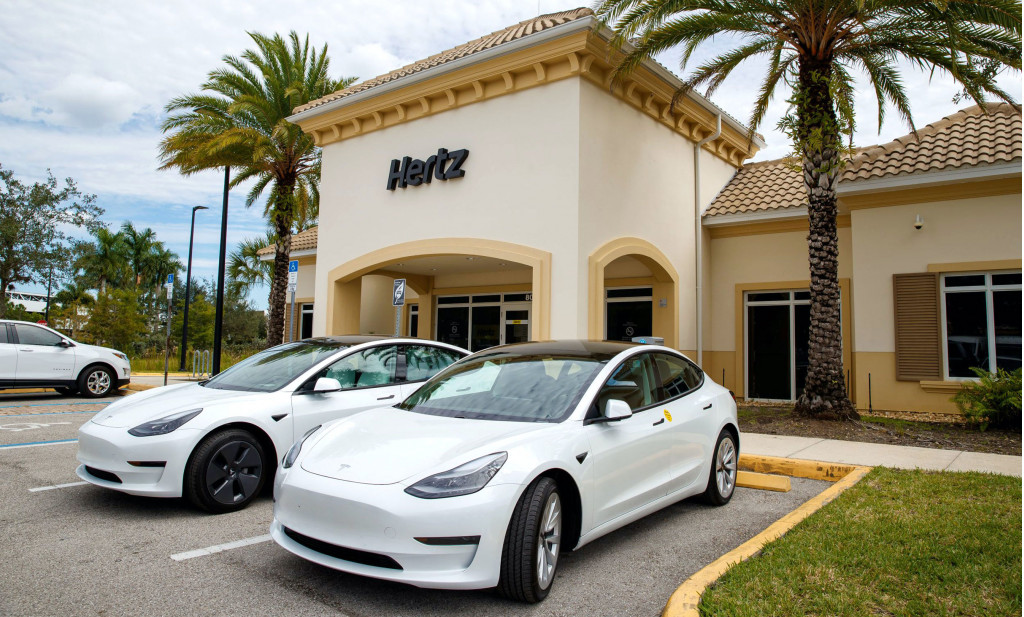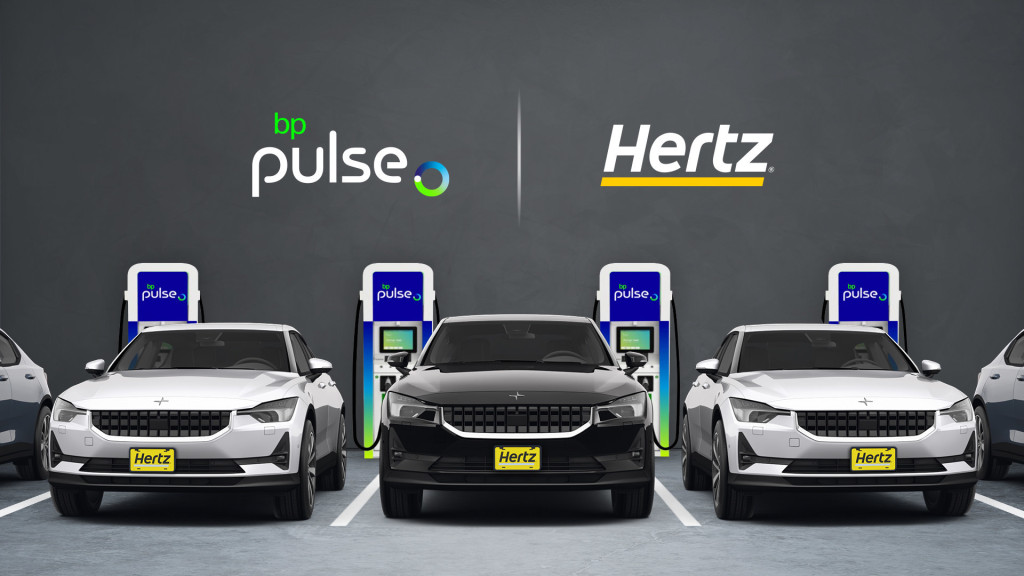The rental giant Hertz hit the brakes last week on its rapid shift to electric vehicles—from Tesla, particularly—citing the high cost of EV collision repair of these vehicles.
The company’s CEO, Stephen Scherr, confirmed the company’s reasons behind the move during its third-quarter earnings call on Thursday, with the news first reported by CNBC.
Maintenance on EVs remained lower than that of comparable ICE vehicles, Scherr explained, but that did little to offset the cost of fixing the cosmetic repairs and fender-benders that are figured into the company’s financials. “For context, collision and damage repairs on an EV can often run about twice that associated with a comparable combustion engine vehicle,” he said, according to an official transcript provided by Hertz.

Tesla at Hertz
The Hertz CEO also pointed to the effects of Tesla price cuts during the course of 2023, which have driven even greater losses of cars that are written off due to collisions.
Hertz and partners have made a deluge of announcements declaring a commitment to EVs and supporting infrastructure. The rental-car company announced in October 2021 that it aimed to add 100,000 Tesla vehicles to its fleets in North America and Europe by the end of 2022—and thousands of rental EVs to many major markets. That was only due to be an initial order, it said, going on to announce plans to buy GM and Polestar EVs, among others, plus plans to deploy up to 50,000 Tesla vehicles for Uber use.
BP also stepped up to announce a publicly accessible national network of EV charging stations specifically intended for those rentals.

Hertz and BP Pulse partner for EVs and charging
Hertz hasn't yet taken delivery of anywhere close to the 100,000 Teslas. The CEO didn’t otherwise specify exactly how much it’s pulling back on each of these previous goals, but he did suggest that “with hindsight, this left leisure over-fleeted with EVs”—a reference, perhaps, to the many accounts on social media of renters completely new to EVs who were suddenly asked to rent one instead, because of an unexpected glut of rental EVs.
Thus, Scherr explained that Hertz will “pace ourselves accordingly with an expectation that our in-fleeting of EVs will be slower than our prior expectations, but we will be stronger for having begun the journey when we did.”
Simultaneously, it’s working toward a more profitable EV fleet, and it expects that as EV adoption in general grows, so will the demand for EV rental—and its actions as an early mover will benefit the company as it scales up. With more of an emphasis on ride-hailing and less on vacationing families, that might serve everyone best in the short term.













